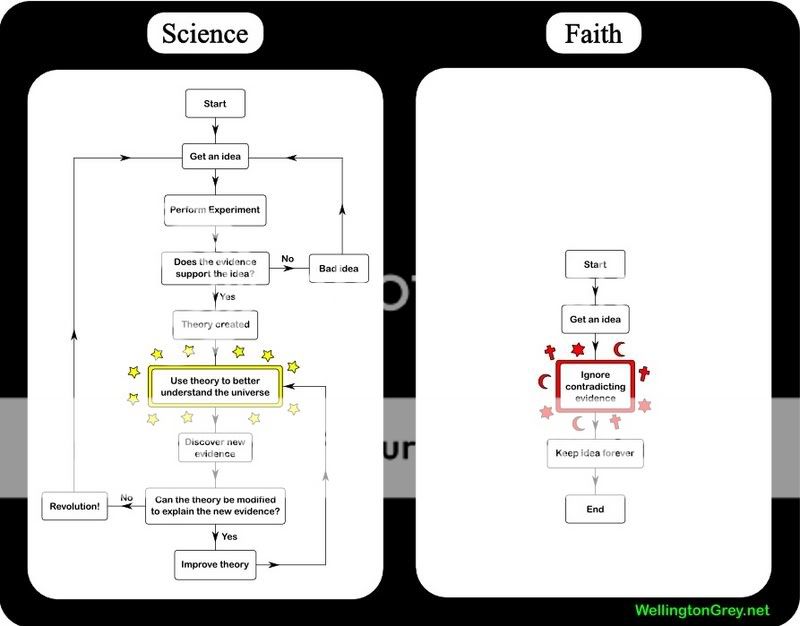INDY500
Rock n' Roll Doggie Band-aid
Irvine511 said:
Darwinism isn't a scientific theory.
evolution is.
[q]The term Darwinism is often used by promotors of creationism to describe evolution, notably by leading members of the intelligent design movement.[1] In this usage, the term has connotations of atheism. For example, in Charles Hodge's book What Is Darwinism?, Hodge answers the question posed in the book's title by concluding: "It is Atheism."[2][3][4] Creationists use the term Darwinism, often pejoratively, to imply that the theory has been held as true only by Darwin and a core group of his followers, which they cast as dogmatic and inflexible in their belief. Casting evolution as a doctrine or belief bolsters religiously motivated political arguments to mandate equal time for the teaching of creationism in public schools.
However, Darwinism is also used neutrally within the scientific community to distinguish modern evolutionary theories from those first proposed by Darwin, as well as by historians to differentiate it from other evolutionary theories from around the same period. For example, Darwinism may be used to refer to Darwin's proposed mechanism of natural selection, in comparison to more recent theories such as genetic drift and gene flow. It may also refer specifically to the role of Charles Darwin as opposed to others in the history of evolutionary thought — particularly contrasting Darwin's results with those of earlier theories such as Lamarckism or later ones such as the modern synthesis. A notable example of a scientist who uses the term in a positive sense is Richard Dawkins.
[/q]
the defensiveness you see is in response to the fanatics who want to qualify it -- and only it, when it comes to scientific theories -- with conservative christian crap, called Creationism or Intelligent Design, or some other fabrication that's come from the annals of american conservative christianism.
i'm sure you do find ID lovely and comforting. you're a Christian. and if you try to poison a science curriculum with that garbage, then i'm going to fight you tooth and nail. it is no more scientific than any other religiously-based creation myth.
If it makes you feel better to call it "science" when conjecture and extrapolations are used to "fill in the gaps" of evolutionary theory, but label it "fantasy" or "conservative christian crap" in Intelligent Design theory.
Go right ahead -- it must be the white coats.
if you want to discuss this over beers, gosh, go ahead. we can also argue about Santa Claus, Atlantis, the Bermuda Triangle, the exitence of Bigfood, and the UFO abdunction phenomenon. it'd be fun.
just don't pretend that there's a scientific foothold.
So have I got this straight? It's wrong to use the terms Darwinism and evolution interchangeably but, perfectly acceptable to lump Intelligent Design in with Atlantis, Big Foot, Santa Claus and UFO's.
Or, as the mentioned in your quote, Richard Dawkins says:
"It is absolutely safe to say that, if you meet somebody who claims not to believe in evolution, that person is ignorant, stupid or insane (or wicked, but I’d rather not consider that)."
Must be nice to write the groundrules of the debate.



